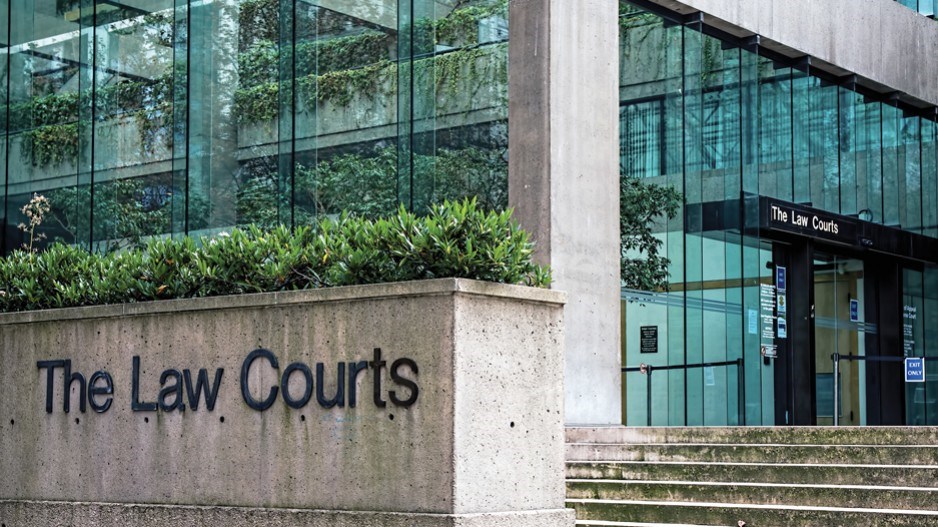A former union local president “concocted a fabrication at trial from beginning to end” to avoid paying his share of damages in a nearly 20-year-old legal dispute, a –°¿∂ ”∆µ judge has found.
Satnam Singh Ghag, also known as Sonny Ghag, was ordered in 2007 to pay $437,706 as the ringleader of unrest at a Mainland Sawmills property in December 2003.
But a judge found in 2021 that he had fraudulently transferred properties to family members in order to avoid paying the sum.
The court ordered Ghag earlier this month to pay some of the legal costs of United Steel, Paper and Forestry, Rubber, Manufacturing, Energy, Allied Industrial and Service Workers International Union (USW) Local 2009 for attempting to mislead the court.
Ghag had transferred all of his real estate property and businesses into the name of his son at no cost on Jan. 8, 2004, just a few weeks after the unrest at the mill and the day before the union local for which he’d served as president was sued by Mainland Sawmills.
“The timing would arouse suspicion in the most trusting of onlookers,” wrote Justice George Macintosh in a June 1 .
The legal action stems from a 2003 labour dispute in which five USW locals – then locals of IWA Canada – were on strike against different sawmills, including Mainland and Interfor Hammond Cedar. The sawmills bargained together through Forest Industrial Relations Ltd., which had reached a deal with the unions and the then-premier, resulting in back-to-work legislation in December 2003.
And while Local 2171, representing Mainland workers, agreed to return to work while still working towards a new collective agreement, Local 1-3567, representing the Interfor Hammond Cedar workers, told its members not to return to work until the back-to-work law was passed.
Considering the Local 2171 workers “scabs” for returning to work while the strike still wasn’t officially over, some Local 1-3567 workers assembled at the Mainland location to picket. A “large number” of those picketers went inside the mill, catching the Mainland workers by surprise and forcing them through threats and violence to leave their posts and preventing the next shift from entering.
Mainland sued Local 1-3567 for trespassing and for shutting down the mill through violence and intimidation, leading to a 2007 decision that found Ghag 40 per cent liable for damages, while 30 others were collectively liable for the remaining 60 per cent of the damages.
Local 1-3567, which eventually became USW Local 2009, was found vicariously liable for the issue, but Ghag was ordered to pay it $437,706 to indemnify it against the loss. To collect on that amount, the local sued Ghag for fraudulent conveyance, claiming the property and business transfers to his son were done in order to avoid paying up.
Several associates testified to either being told directly by Ghag that he was planning to protect his assets after the incident or overhearing Ghag talking about doing so. But Ghag “adamantly denied” those conversations, Macintosh noted in the 2021 decision.
Ghag claimed he had no worries of liability from the incident because he didn’t believe there would be a legal claim or, if there was one, he would be protected by the IWA’s strike fund.
Macintosh found in his 2021 decision that Ghag’s testimony was unreliable, pointing to a slew of instances of dishonesty, including attempting to dislocate himself from the position of ringleader in the 2003 unrest. And when shown his affidavits in previous tax appeals, Macintosh said Ghag was “cavalier, indeed disdainful, about the many falsehoods the affidavits contained.”
Local 2009 asked the court to order special costs against Ghag to cover its legal costs in the matter.
But while the defendants “dragged their feet” to get to trial, Macintosh noted there were understandable complications, including that the fraudulent transfers were a decade old by the time the lawsuit was filed, there were multiple parties named as defendants and many documents were held by third parties.
As such, Macintosh declined to order special costs against the defendants for their actions prior to trial – but the conduct in trial was another story.
Ordering Ghag to pay the legal costs during trial, Macintosh said Ghag’s “conduct at trial was reprehensible, and thus deserving of special costs.”


